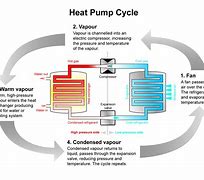Moving Away from Fossil Fuels: Options for efficient space heating and water heating in your home
In Massachusetts, residential buildings represent 24% of greenhouse gas emissions and will play a large role in helping the State reach its target of net zero greenhouse gas emissions by 2050. To this end, Massachusetts is aiming to retrofit and decarbonize 1 million residential buildings by 2030, through electrification and efficiency measures.
If you are considering upgrading inefficient heating equipment, it is helpful to start with with a no-cost home energy assessment. Your custom home energy report will include information on rebates.
Air-Source Heat Pumps (“ASHP”): 
Technology Description: From Mass. Clean Energy Center (Mass. CEC) Air-source heat pumps are a flexible, cost-effective and energy-efficient option for both heating and cooling homes in a cold climate like Massachusetts. While traditional systems burn fuel to create heat, ASHPs work by moving heat in the air into or out of a home. Using electricity to power a compressor, they transfer heat using the refrigeration cycle, moving heat indoors in winter and outdoors in summer. Think of it as an air conditioner that can also work in reverse.
The ASHP system may distribute hot or cold air using your existing ductwork. Ductless options are also available.
Cost: ASHPs are eligible for Federal tax rebates and generous MassSave rebates. Although they require electricity to operate, they are much more efficient, and thus lower-cost, than electric resistance (electric baseboard) heating and also save money on utility bills compared to heating with propane or oil.
- Explore the Mass CEC website for a wealth of details, including graphics, videos, and text about cost, rebates, technology explanations, and customer stories.
Ground-Source Heat Pumps (“GSHPs”):
Technology Description:
From Mass Clean Energy Center (Mass CEC): A ground source heat pump is the most efficient heating and cooling system available, more efficient than electric resistance (electric baseboard), oil, propane, or gas heating. They also provide highly efficient air conditioning and potentially hot water.
Also known as a geothermal heat pump, a ground-source heat pump exchanges heat through piping buried in the ground. In the winter, it absorbs the abundant, renewable heat in the ground to heat your home. In the summer, when the air is warmer than the ground, it uses the cooler temperature of the earth to reduce the temperature of the air in your home. Ground-source heat pumps do not burn fossil fuels; they use electricity to run a compressor.
Cost: Initial cost is higher than air source heat pump, but generous rebates are available. The operating costs are typically lower than oil, propane, or electric resistance, and about the same as (or marginally higher than) natural gas heating .
A minimum of a small yard is necessary for the holes to be drilled.
- Explore the Mass CEC website for a wealth of details, including graphics, videos, and text about cost, rebates, technology explanations, and customer stories.
Solar Hot Water:
Technology Description:
From Mass CEC: Solar collectors, mounted on the roof or ground next to a home, absorb heat from the sun and transfer it through a fluid loop into a solar storage tank (typically located in the basement or mechanical room) that stores preheated water. This heated water is then piped throughout the home to showers, dishwashers, sinks, and washing machines. Solar hot water systems can also be used for pool heating and for space heating.
Solar hot water systems are typically sized to provide up to 80% of a home’s annual domestic hot water needs. Since the sun is stronger in the summer, the solar hot water system can provide for all of a home’s domestic hot water needs during that season. In the winter, when the days are shorter, a backup heat source (often an electric resistance heating element) is used to provide additional hot water to meet 100% of a home’s hot water needs.
- Households that do not have sufficient roof space for a solar PV system may still have enough roof space for a solar hot water system.
- There are federal and state incentives available. Read more.
- The Solar Hot Water section of the Massachusetts Clean Energy Center website is a good resource.
Heat Pump Water Heater:
Technology Description:
From Mass CEC: Heat pump water heaters transfer heat from the surrounding indoor air (or the outdoor air, if the water heater is connected to the outdoors by vents) into a hot water tank in an open, unfinished basement or garage. This heated water is then piped throughout the home to showers, dishwashers, sinks, and washing machines. When needed, a backup source of heat in the tank will provide supplemental hot water. Because heat is transferred instead of generated by burning fossil fuels or using an electric resistance tank, heat pump water heaters can be three times more efficient than conventional water heaters.
If the heat pump can’t meet the hot water heating needs of the home (due to high usage or the space becoming too cold for sufficient heat absorption), backup electric resistance elements can boost the temperature of the water as needed. By pulling heat from the surrounding air, heat pump water heaters also provide dehumidification to the space in which they are located.
Cost: Massachusetts rebate and a federal tax credit of up to $2000 are available. See Mass CEC chart.
Still have Questions?
Would you like to talk to someone knowledgeable about efficient space heating and water heating in your home who is not a salesperson? Green Needham can provide expert advice that is free from commercial bias (we’re not trying to sell you something). We can meet with you in your home or over the phone to help answer your questions.
What we can do:
- Help you determine whether the project makes sense for your house
- Estimate the probable costs and savings for your project
- Determine how the project will affect your carbon footprint
- Discuss how to find contractors for your project
- Help you review contractor proposals and compose important follow-up questions to ask
- Discuss the “next steps” for moving forward with the proposed project
What we can not do:
- Design the work
- Calculate firm costs and savings
- Oversee the construction
So, ask a Green Needham Energy Coach your project questions.
Updated Jan, 2024
Resources
Documents
- Air Source Heat Pumps 101
- Energy Efficient Heating with Ductless HVAC
- GNC Heat Energy Calculator w.Cost
- Whole Home Air Source Heat Pump Pilot Program
Resources on the Web

|
Green Needham Energy Coaching Video
Watch Green Needham's Energy Coaching video recorded by the Needham Channel - learn more about green technology options for energy projects in your home. |
|
Heat Pumps with Abode
Green Energy Consumers Alliance recommended resource - Find installers & compare options with advice from neutral experts at Abode | |

|
HeatSmart Alliance
Mass HeatSmart Alliance - Mission is to reduce greenhouse gas emissions by accelerating adoption of energy-efficient heat pumps in Massachusetts homes and buildings. |

|
MA Clean Energy Center (CEC) Air Source Heat Pump Cost Estimator
MA CEC web page that helps homeowners learn about heat pumps, their different “flavors”, costs, installers, etc. |

